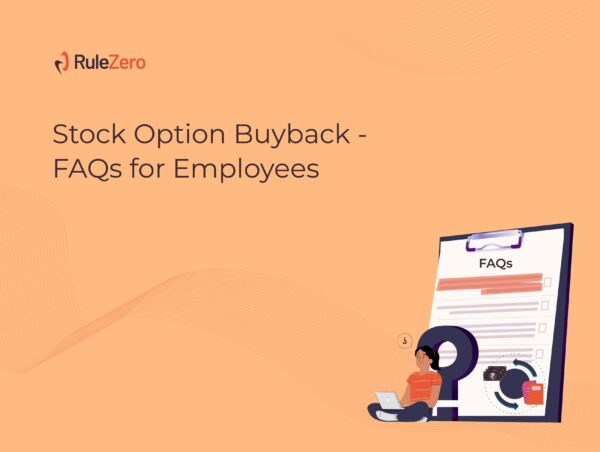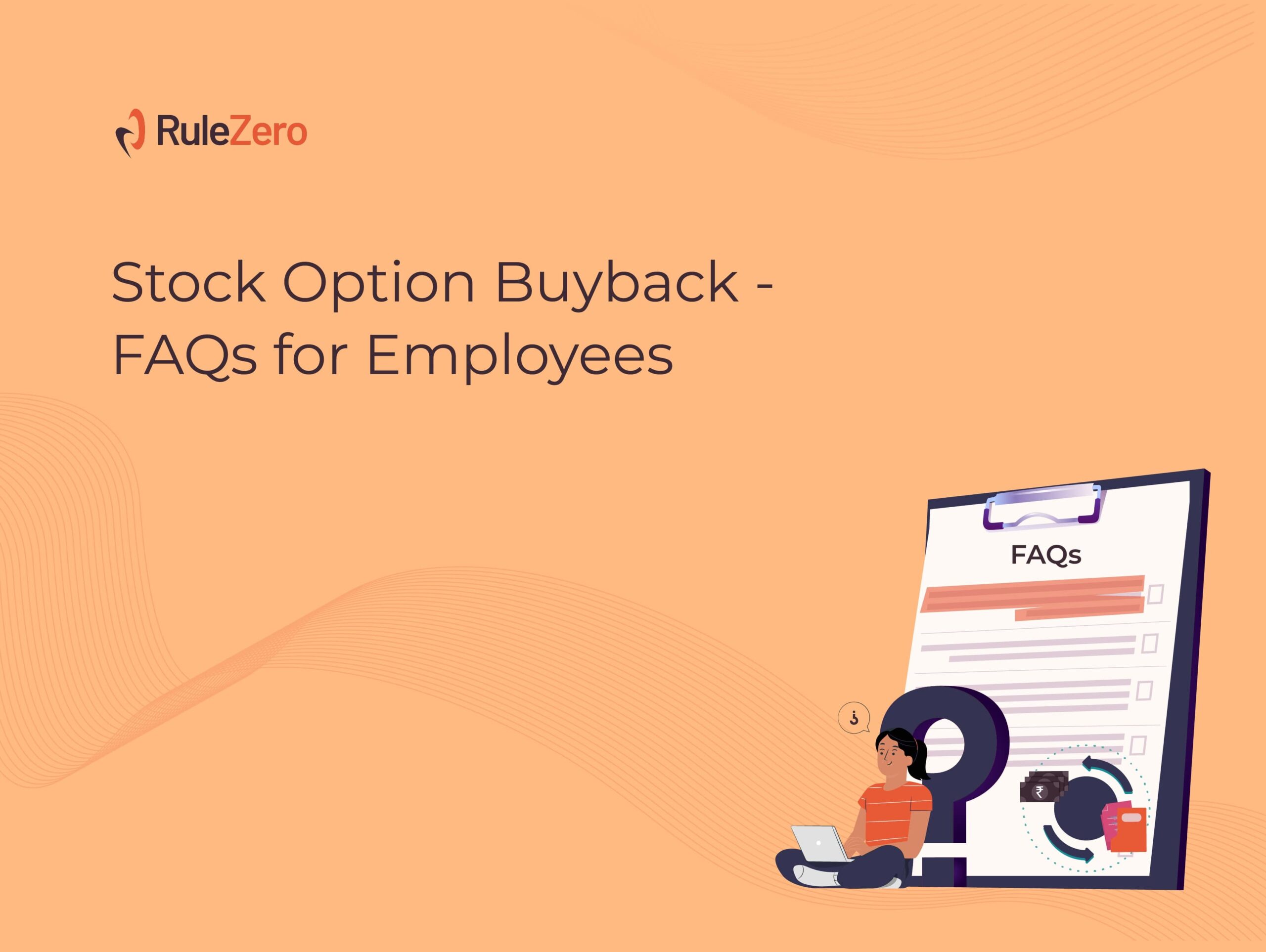You’ve just got an offer letter from the start-up company you interviewed with last week. Is there a clause on stock options in that offer letter?
Here are some key points you need to know.
Start-ups use stock options to attract and retain talent since they usually lack the funds (cash flow) to keep up with market compensation levels during the initial years. Over the past decade or so, stock options have given exemplary returns to employees. Does this mean though that employees can blindly accept stock options in lieu of salary or other cash compensation? Is it a good decision for employees to give up guaranteed money that they could earn today for returns that they may or may not earn in the future?
Let’s try and answer this question in the course of this article.
First let’s understand how you earn returns on stock options. Here’s an example.
A company has granted 10 stock options to the employee, each with an exercise price of INR 10. Once the options have vested, he/she exercises the options by paying INR 100 (INR 10*10 options). The fair market value of the company’s shares on the date of exercise is INR 100 per share. Hence, if the employee sells the shares they now own, they will get INR 1,000 (10 shares * INR 100). The net gain that the employee has earned on the options is INR 900 (INR 1,000 – INR 100). This upside is treated as perquisites to the employees and is taxed as income.
What questions should you (potential employee) be asking if stock options form part of your compensation package?
1. Does having a stock option clause in my offer letter mean I now hold options in the company?
No. A clause on stock options in your offer letter does not mean options have been granted to you. Only after a grant letter is issued to you, and after you have accepted the terms of the offer, you become an option holder.
2. Does a stock option clause in my offer letter guarantee that I’ll get stock options in the future?
No. The board of directors decides which employees are to be granted options. Typically, there are some qualifying criteria like the performance, seniority etc., that decide who qualifies the grant of options. Accordingly, if you qualify, you will be granted options, as per the terms of the stock option plan. You will then receive a grant letter with the terms of the grant.
3. Does a grant of options mean I hold the shares in the company?
No, a grant only gives you the right to purchase the shares of the company at a predetermined discounted price in the future. The terms of the grant are mentioned in the grant letter. It means you could become a shareholder, but you’re not one yet.
4. How long does it take for me to convert my options to the shares of the company?
Conversion of options to shares depends on the vesting conditions. Pay attention to the vesting conditions in the grant letter. This can be time-based, performance-based, or both. Once the conditions are satisfied, your options are vested.
(Refer to Part B for more on vesting conditions.)
5. Who is liable to pay tax on stock options- Company or employee?
Tax will be paid by you at two stages, at the time of exercise (conversion of options to shares) and sale of shares.
- At the time of exercise (perquisite) – The difference between the fair market value (FMV) of the company’s shares on the date of exercise and the amount paid by the employee to exercise the option (i.e., buy shares) is considered a perquisite. This is taxed under the heading ‘income from salary’ in the financial year in which the options are exercised. In that year, the employer deducts tax at source on the perquisite value of options exercised.
- At the time of sale of shares (capital gains) – If the employee sells their shares, the difference between the sale price and the FMV of shares on the exercise date is taxed under the head ‘income from capital gains’ in the financial year in which the shares are sold. Capital gains may be long-term (if the shares were held for more than one year) or short-term (if the shares were held for less than one year).
6. Can I transfer my options?
No. Unlike shares that can be transferred to other shareholders of the company, stock options are non-transferable.
7. What happens to my options if I plan to leave the company?
If you hold vested options at the time of initiating the separation, then you must exercise them within the time specified by the company and buy the shares; if you don’t, the options will lapse. The unvested options will go back to the company’s option pool. Although rare, in some occasions, companies may allow acceleration of vesting of options that are still in the grant stage, thus enabling exercise.
8. What happens to my options if the company is listed, acquired or merges with another company?
Events that lead to restructuring of companies, such as IPOs, acquisitions, mergers, have an impact on the options you hold. These are called liquidity events. In such scenarios, vested options may be bought back by the company, or companies may accelerate vesting of options granted, allow exercise of shares, and buy back the shares at a premium. However, liquidity events don’t come by quickly. They take years and it is your decision – whether you want to trade in part of your (cash/salary) compensation for options.
9. What is the rate at which the company has grown since incorporation?
The growth rate has a direct impact on the share price. Higher the share price, higher the return. Hence understanding the rate at which the company has grown and the corresponding growth in its value helps in deciding whether to take up the grant offer or not.
10. Will I be compensated if the value of the company’s stock falls in future?
Companies typically do not give any commitment to compensate employees for any losses to holders of stock options if share prices fall. As an employee, you must be aware of the risk that stock options carry before accepting the offer. No company promises a gain or guarantees an increase in the value of its shares.
11. Can I revise my compensation structure at a later point in time if I no longer want stock options?
Yes, ideally, there is no restriction about this. However, it depends on the terms of your employment contract, and restructuring compensation is a conversation you need to have with HR / company management. You can take this up as part of the annual review.
Stock options come with a bunch of terms and conditions (vesting, exercise, transferability, etc.) that need to be understood in detail. For more information on stock options, read our blog on the Fundamentals of ESOP.









